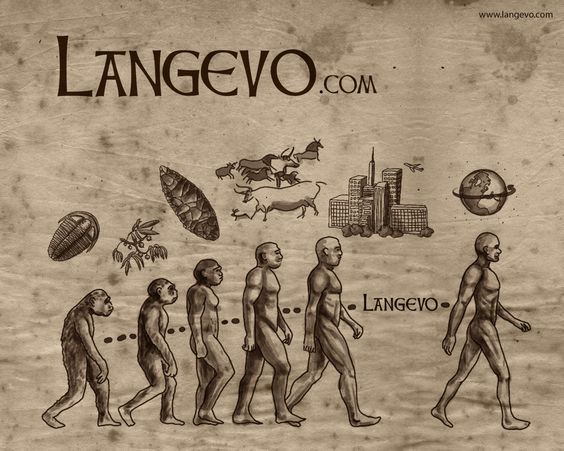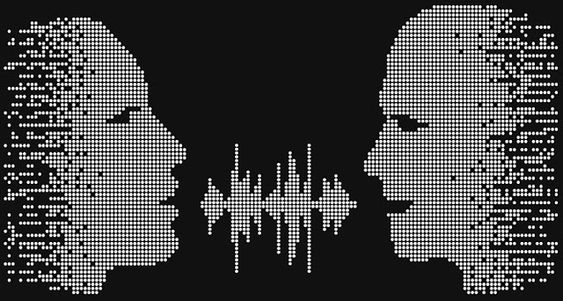
The diversity of languages in the world can be attributed to various factors, including geographic isolation, cultural differences, and historical events
Shoukat Lohar
Language evolution and its historical background
Language is a unique human ability that has played an essential role in human evolution. It is a complex system of communication that allows humans to share ideas, thoughts, and emotions with each other. Language evolution refers to the process by which human beings have developed and refined the use of language over time.
Human beings gained the most powerful tool of language through a gradual evolutionary process. The development of language began about 2.5 million years ago with the emergence of Homo habilis, a species of early human who used stone tools. However, the use of language became more sophisticated with the emergence of Homo erectus, who had a larger brain and more advanced cognitive abilities. Homo sapiens, the modern humans, have the most sophisticated language system, and their ability to communicate using language is considered one of the most important factors that enabled them to dominate the planet.
Scientific evidence has supported the discovery of human language. In the mid-19th century, Charles Darwin proposed that language had evolved in humans in the same way that other traits evolved through natural selection. Moreover, studies of the human brain have shown that specific regions are dedicated to language processing, suggesting that language is an innate ability of the human brain.
Homo habilis, Homo erectus, and Homo sapiens are early human species that played a crucial role in language evolution. Homo habilis is thought to have used simple communication systems based on vocalizations and gestures.

Homo erectus is believed to have had more advanced communication abilities, including the use of a basic language system. Homo sapiens, with their advanced cognitive abilities and larger brain, developed a more sophisticated language system, including the use of grammar, syntax, and a vast vocabulary.
The diversity of languages in the world can be attributed to various factors, including geographic isolation, cultural differences, and historical events. Linguists believe that all languages are equal, and none is superior to others. Each language is an expression of the unique cultural and historical experiences of its speakers.
Language death is a natural phenomenon that occurs when a language is no longer spoken by any community. However, it can also be a man-made problem, caused by factors such as globalization and the dominance of a few dominant languages. To save languages from extinction, efforts must be made to preserve them through documentation, language revitalization programs, and the promotion of multilingualism.
Conclusion
Language evolution is a fascinating and complex process that has played a crucial role in human development. It has enabled humans to share ideas, emotions, and thoughts, and it is an essential tool for cultural and social communication. (However language is more than just as tool if speaking) The diversity of languages is a testament to the richness and complexity of human culture, and it is our responsibility to protect and preserve this linguistic diversity for future generations.
Language has been defined by the most prominent linguists of the world as:
“Language is the system of vocal symbols by means of which we communicate with each other.” – Edward Sapir
“Language is a system of arbitrary vocal symbols by means of which a social group cooperates.” – Ferdinand de Saussure
“Language is a system of communication using sounds, gestures, or marks that are put together according to certain rules, resulting in meanings that are intelligible to all members of a society.” – Noam Chomsky
“Language is the method of human communication, either spoken or written, consisting of the use of words in a structured and conventional way.” – Oxford English Dictionary
“Language is a specifically human cognitive capacity that enables us to represent aspects of the world symbolically, and to communicate these representations to others.” – Steven Pinker
Here are some more statements on language by the prominent writers of the world:
“Language is not a genetic gift, it is a social gift. Learning a language is not just learning grammar rules, vocabulary and pronunciation, it is learning a new way of thinking and seeing the world” – Flora Lewis
“Language is the road map of a culture. It tells you where its people come from and where they are going” – Rita Mae Brown
“The limits of my language mean the limits of my world.” – Ludwig Wittgenstein
“Languages evolve like living organisms. The best way to study them is to look at them in their natural habitat” – Noam Chomsky
“Language is not an abstract construction of the learned, or of dictionary makers, but is something arising out of the work, needs, ties, joys, affections, tastes, of long generations of humanity, and has its bases broad and low, close to the ground” – Noah Webster
“Language is the dress of thought” – Samuel Johnson
“The history of a language is the history of the people who spoke it” – Bill Bryson
“Language is the source of misunderstandings” – Antoine de Saint-Exupéry
“Language is the key to the heart of people” – Ahmed Deedat
“Language is the armory of the human mind, and at once contains the trophies of its past and the weapons of its future conquests” – Samuel Taylor Coleridge
___________________
 Shoukat Lohar is Assistant professor in English at Mehran University of Engineering and Technology Jamshoro. He can be reached at Shoukat.ali@faculty.muet.edu.pk
Shoukat Lohar is Assistant professor in English at Mehran University of Engineering and Technology Jamshoro. He can be reached at Shoukat.ali@faculty.muet.edu.pk